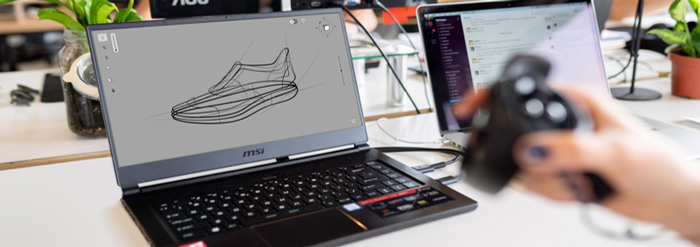Section 2: The role of retailers & brands
Key points
- Businesses will need to rethink, and ensure their brand values align with that of their customers in both the real world and the metaverse
- Corporate roles within the metaverse may encompass more societal, environmental and even political functions in the future
- Retailers’ and brands’ propositions will likely incorporate life-style, entertainment and personal assistant services
Brands may have to reposition themselves due to new consumer values in the metaverse. They will likely need to reconsider their value framework, and accept that customers will expect more authenticity and seek more meaningful relationships; this could mean striving towards relationships that feel more like friends, mentors and lifestyle advisors to their ‘customers’.
Over the past few years, brands have already expanded their propositions, eyeing potential moves towards life-style services. Amazon is a ‘Prime’ example here, offering services including music, film, gaming and web-hosting. Again, the metaverse with its creative potential is likely to accelerate the trend for brands to offer lifestyle services, with winners quick to fulfil demand in emerging areas.
Businesses will not only compete with other businesses, but they will be competing with thousands of other ‘virtual distractions’. As such, brands will aspire to be closer to their customers. The abundance and richness of user generated data from VR headsets and digital interactions will help achieve this objective. By leveraging data science, profoundly deep insights on individual customers can be extracted – their behaviours, preferences, intentions, biometric data.
In this context, consumer perks, personalised promotions and privileges will likely be used in powerful marketing strategies in the metaverse. Therefore, increased potential for nurturing more intimate customer relationships is a distinct possibility. This may even result in personal assistant services offered to metaverse users where ‘retailers’ remind ‘customers’ to take their medication, remember appointments, or advise them on real-world relationships and...
Download this free report for all the insights > complete the form at top of page...

Metaverse products & services
Key points
- The metaverse will need to be viewed as another place, not just a marketing channel
- Gaming and music are being used as entry points to sell products
- Virtual products and services will need to be developed with a new set of consumer values in mind
- Gen Zs and Gen Alphas will be prime targets
- Avatar enhancement will be a key market
- Early entrants include Gucci, Nike, Vans and Moncler
If the metaverse is widely embraced, retailers and brands will need a radical rethink when considering the types of products and services they will offer. Companies will come to appreciate that the metaverse as another place – not just another channel.
Retailers will need to think carefully about how their products will be used, seen and ultimately valued by metaverse customers in light of shifting consumer values – experiences being valued above materialism (the concept of peak stuff driven by ESG principles). This value shift, dovetailed with the creative potential of the metaverse, will see experiences at the epicentre of retailer’s ‘metaverse strategies’.
For example, Nike partnered with Roblox in 2021 to develop ‘Nikeland’, a virtual world featuring sports fields, arenas and showrooms to offer Nike gear, alongside the opportunity to unlock ‘superpowers’ and explore the future of virtual sports.
Gucci also partnered with Roblox during the pandemic to create Gucci Gardens, a virtual version of the Gucci Garden in Florence that includes a Gucci Store, Gucci Museum and Gucci restaurant. It was an event that lasted just two weeks where in this virtual world, users were able to try on different virtual items that they could then purchase using their Robux.

During the event, Gucci allowed users to buy a Queen Bee Dionysus bag for 475 Robux, or $5. The bag was only on sale for 1 hour, creating scarcity for the limited digital product. One of these virtual bags was later sold for over $4,000 – more than the actual bag in real life.
From early indications, it is evident that there is likely to be strong demand for digital assets. These assets are likely to fall into two categories: (1) pure digital; and (2) real world digital. Pure digital assets will reside in the metaverse in virtual form (e.g. avatar clothing); while real world digital assets will be digital representations of real-world objects that can be purchased and delivered to customers’ homes (e.g. iphones).
Walmart partnered with a digital agency in 2017 to develop a video showing what a VR shopping experience could look like. More recently, Tommy Hilfiger partnered with experiential ecommerce software provider Obsess to create a virtual store experience simulating the interior of one of their actual stores.
"It’s all about storytelling and self-expression. There are so many people who come together and socialise and connect with their friends, and they want to represent their digital selves through fashion.
- Christina Wootton, Vice president brand partnerships, Roblox
Regarding services being offered in the metaverse, the same distinction applies. There will be pure digital services that are solely tied to the virtual realm, and real-world digital services that are promoted in the metaverse that are delivered in real life.
Download this free report for all the insights >

Virtual marketing
The metaverse will give rise to another digital plane within the marketing industry. Wherever there are billboards and advertisements in the real world, so too will there be similar virtual locations in the metaverse – from the back of toilet doors to the sweeping bends on racing tracks.
The marriage between virtual gaming and brand sponsorship will become closer, in a similar fashion to Intel Extreme Masters sponsoring Electronic Sports League (ESL), and Red Bull sponsoring Dota 2 events.
Competing for consumer attention will become hyper-competitive in the metaverse era. Currently within the attention economy, brands are grappling with posting their messages on different social media platforms and on websites. Future marketing strategies will be infinitely more complex, weaving threads between the real-world, online, and virtual worlds.
Specialist virtual marketing agencies are likely to emerge with keen knowledge of all the moving parts within the metaverse and how they operate in concert (e.g. brand values, target markets, customer profiles, big data, cyber security, crypto-currency and NFTs). A such, partnerships with digital agencies, particularly with those with data science capabilities, will likely be required.
[Excerpt: download the full report for more detail]
Intellectual property
Key points
- Brands have already filed trademark applications signalling firm intentions
- Legal filings for virtual merchandise, own-brand crypto-currency and non-fungible tokens have also been made
- Cyber security will be a key challenge for businesses operating in the metaverse
The quantity of legal filings for intellectual property are key indicator of intent for businesses venturing towards the metaverse. A handful of companies have already been quietly filing for new trademarks to protect IP.
Nike, having made early strides, filed a number of trademark applications in November 2021 outlining plans to sell virtual apparel and footwear.
In December 2021, Walmart filed trademark applications for both virtual merchandise (e.g. virtual electronics, indoor and outdoor furniture, toys, apparel, books) and financial services (digital currency and tokens).
Abercrombie & Fitch, Urban Outfitters and Ralph Lauren have also filed trademarks indicating firm intent to develop and open a virtual store in the future.
[Excerpt: download the full report for more detail]
Non-fungible tokens (NFTs)
Key points
- Non-fungible tokens (NFTs) are purchasable virtual assets developed using blockchain technology
- Companies can create their own NFTs
Businesses are continually researching and implementing ways to reduce payment friction and transactional hesitancy. Some brands are taking this a step further by intending to operate in the metaverse using their own crypto-currencies, and to ‘tokenize’ physical products and services by using non-fungible tokens (NFTs) underpinned by blockchain technology for proven authenticity.
OpenSea, the world's largest NFT marketplace, defines non-fungible tokens as ‘unique, digital items with blockchain-managed ownership’. As such, NFTs represent virtual goods or digital assets that can be verified and traced through blockchain technology. Examples include images, 3D objects, songs, videos and social media posts.
For high value items, using NFTs is an ideal way to secure purchases because they can be authenticated. This approach would be welcomed by designer fashion brands selling luxury assets for instance. NFTs can be traded online too. Companies such as Gap, Under Armour and Adidas have all offered up NFTs which have traded successfully, fetching significant sums on OpenSea.

Section 3: Concerns: cyber security, legal & ethical
Key points
- Current cyber security solutions may fall short in dealing with new risks associated with emerging vulnerabilities in the metaverse due to its architecture
- Unprecedented legal challenges will require new laws, regulations and agencies to effectively manage conflict
- The need for robust ethical frameworks, prior to the rollout of the metaverse is vital to mitigate against risks associated with data privacy, harm to vulnerable users and adverse health effects
As the metaverse evolves, it will not be without its complications. Issues around cyber security, intellectual property, and ethical considerations will no doubt require a multifaceted approach to provide a secure user environment. Many of the key hurdles have already been identified with ongoing R&D activity focussed on presenting viable solutions. This section takes a brief look at some of these key concerns.
Cyber security
Cybersecurity and cybercrime is evolving rapidly and becoming more sophisticated. Advancing digital agency facilitated by AR, VR and IoT (Internet of Things) presents ever increasing opportunities for hackers.
Naturally, as the metaverse matures, cyber security will play an increasingly important role in generating confidence for consumers. Organisations will require advanced systems of assessing risks and vulnerabilities to ringfence their assets and interests.
The metaverse is likely to present an entirely new genre of cyberattacks beyond conventional phishing, malware, and hacking, due to its infrastructure. Additional targets will include cryptocurrency wallets, NFTs, avatar IDs, and possibly the digital infrastructure governing virtual worlds.
The Identity Theft Research Center (ITRC) shows that recorded data breaches increased by 17% in 2021 compared to 2020.
Currently, human error still remains the major contributing factor for cybercrime, causing 95% of all digital security breaches (IBM, Cyber Security Intelligence Index Report). In the metaverse era, it is likely that companies will have to enhance all aspects of their in-house digital security with improved staff practices, advanced passwords, email vigilance, and...
Download this free report for all the insights > complete the form at top of page...
Legal frameworks
New ideas, products and services often require new laws, practices and specialisms. The metaverse is no exception here. In fact, it is likely that entirely new areas of law will emerge as the technology matures due to its far-reaching societal implications if widely adopted.
The metaverse, with its many facets, will present a ‘library’ of new legal implications. These are likely to include: (1) potential challenges concerning intellectual property rights (digital assets and trademarks); (2) competition law (anti-trust, price setting, monopolies and mergers); (3) cyber security (data privacy and protection); and (4) financial markets law (digital currencies and NFTs).
Regulatory authorities are also likely to face challenges with preparing for an entirely new set of responsibilities, user behaviours and values.
The current legal framework is already being tested with companies filing trademark applications to secure intellectual property rights; but unprecedented situations will arise, highlighting ‘grey areas’ which are likely to require laws amendments and regulations. For example, establishing who bears responsibility for data processing in an entirely decentralised network, could be challenging. Also, how privacy notices are displayed, particularly with...
[Excerpt: download the full report for more detail]

Ethical issues
There are many ethical considerations that require addressing if metaverse participants are to operate in a safe and secure environment. These considerations are likely to become more complex with additional online features, opportunities and targets; but arguably, the resulting harm from abuse could also be more intense due to greater human sensory connection with this digital realm.
Data privacy
The metaverse will undoubtedly present consumers with new and exciting ways to access products and services. However, use of VR and AR devices (and brain-computer interfaces (BCIs) currently being developed) will lead to a new class of data harvesting which will likely capture a range of user thoughts and intentions, from the mundane, to intimate ‘secrets’. It is likely that user engagement with the metaverse will result in a trade-off with their data privacy.
Much of this data can, and is likely, to be permanently stored on blockchain technology. With the use of AI, machine learning and data mining techniques, deep insights can be extracted from this data to construct an extremely accurate profile for every user.
Although many online privacy policies are explicit, they are often consented to in absence of full understanding of its implications. This is likely to be the case with privacy policies in the metaverse; meaning personal data will likely be stored and could be used for purposes that users may not have consented to if they had full comprehension of policy implications. Therefore, policies could be presented using more lay terminology with greater transparency of its implications.
User protection
Protecting vulnerable users and children from cyber bullying, cyber stalking, online sexual harassment, and even user addiction (gaming disorder) is vital to mitigate against any potential harm. With Roblox for instance, 54% of its 202 million monthly users are under 12 years old (Roblox Corporation, 2020). Using this as an indicator, it suggests that the initial wave of metaverse participants will be younger, more vulnerable users.
Furthermore, robust measures need to be put in place to restrict children’s access to different ‘worlds’ that feature extreme violence or explicit adult content. In a BBC investigation reported in February 2022, the NSPCC warned that some apps in the virtual-reality metaverse are ‘dangerous by design’. The report also showed that a researcher posing as a 13-year-old girl witnessed ‘grooming, sexual material, racist insults and a rape threat’ in the virtual-reality world.
Retailers and brands also need to be aware of risks associated with user health and wellbeing. There is arguably an absence of robust ethical frameworks addressing user addiction (gaming disorder) and adverse health effects from prolonged exposure to hyper-realistic experiences with VR headsets and remotes which can trigger sensory overload inducing fits, seizures and other unknown psychological harm.
It is essential that...
Download this free report for all the insights > complete the form at top of page...

Conclusion
Currently, the metaverse is primarily conceptual, although significant levels of investment are being sunk into its infrastructure, app development and issues concerning intellectual property. This signals firm intent for many organisations to engage with the metaverse more long term and to exploit opportunities afforded by this technology.
Early virtual reality (VR) experiences are already being created by brands within a gaming and entertainment context to sell virtual merchandise, however the full extent of use cases is still yet to emerge and has the potential to be vast in scope.
Many key concerns still remain unaddressed. These include aspects within cyber security, law and ethics; and it will be vital to implement robust frameworks addressing these aspects to ensure a safe and secure user environment.
When considering the metaverse as another place, not just as a marketing channel, retailers and brands will need to assess how they are going to best fit into this virtual space and what aspects of their business may need rethinking.
They will need to consider how their products and services will be viewed, used and traded, because the metaverse has the potential to profoundly impact the customer journey, and customer relationships in the future.
If the metaverse is widely embraced, it is likely that businesses will need to consider a shift in brand positioning and proposition to remain relevant in a new digital age defined by more immersive experiences.
Although many unanswered questions remain, certainty exists in that the metaverse will undoubtedly garner increasing attention as businesses begin to leverage opportunities from this technology as it matures.
We hope you found this article interesting. For more insights and industry analysis be sure to connect with us.
About this report
This report is published by Retail Economics and looks at the potential impact of the metaverse on the retail sector. It explores many of the key themes at a high level and looks at what this emerging technology could mean for retailers and brands in the future. The insights are useful as a introduction to the topic and serve as a ‘talking point checklist’ for more productive meetings on the subject.
View All THOUGHT LEADERSHIP REPORTS